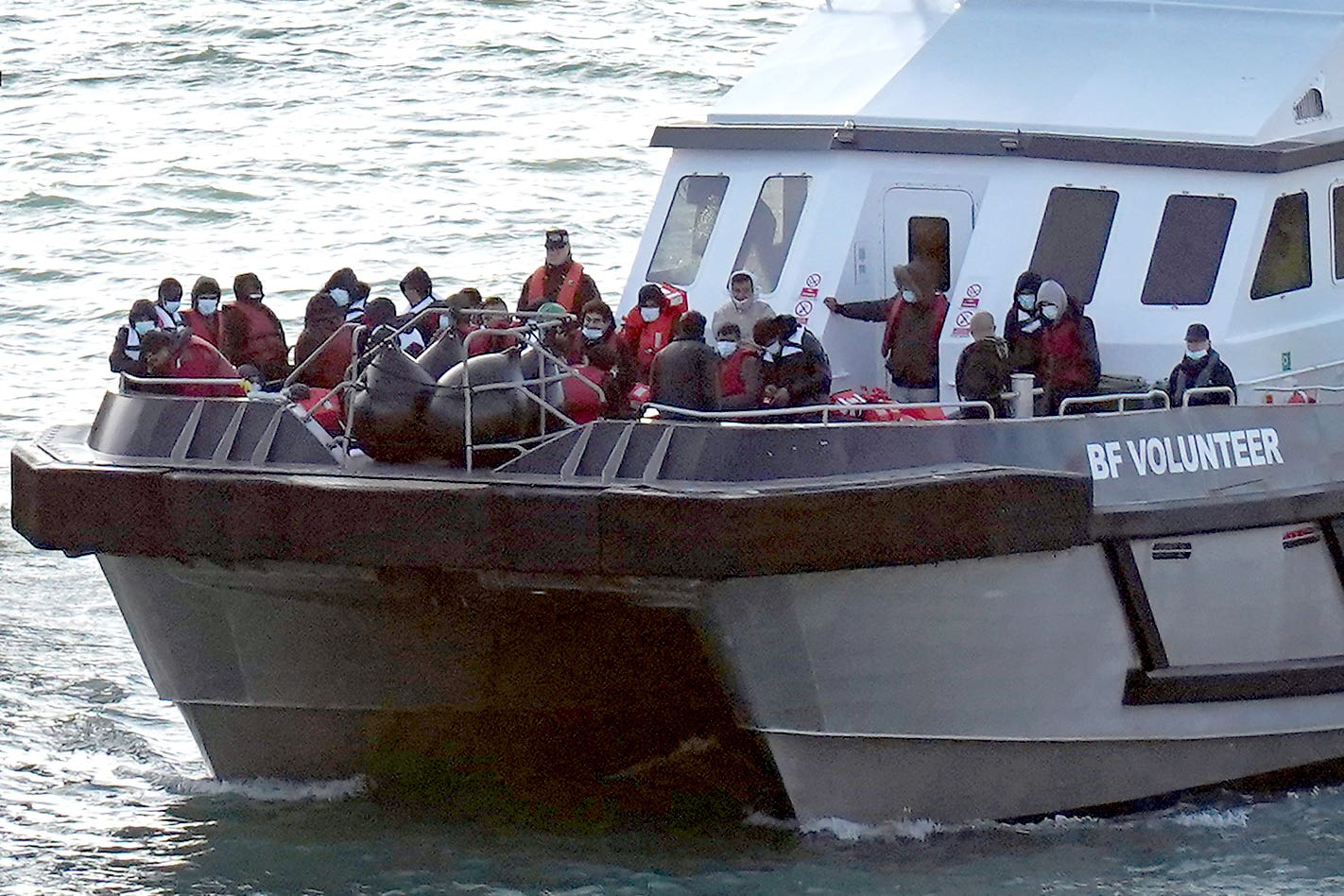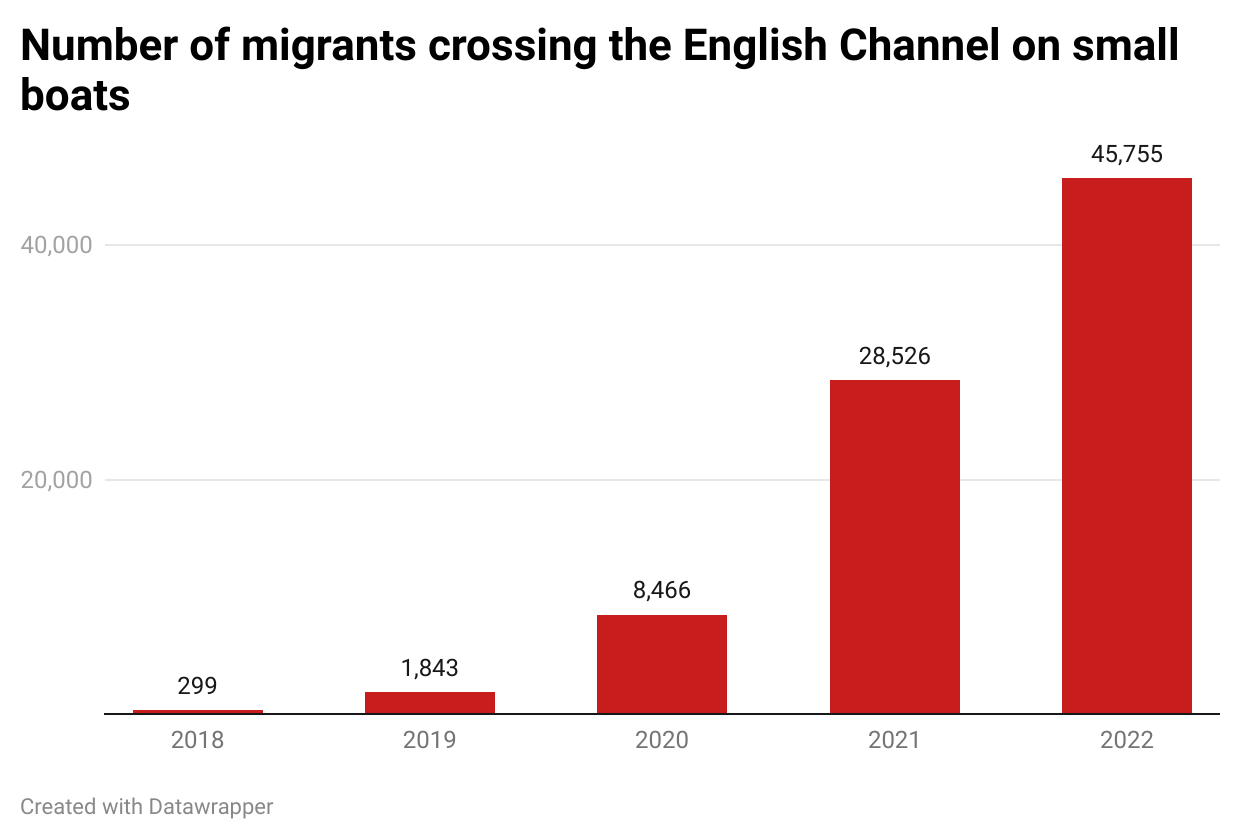‘Real practical problems’ with Rishi Sunak’s new small boats law, Tory grandee warns
Former Tory cabinet minister adds to mounting questions over how government plans can be put into practice
Your support helps us to tell the story
From reproductive rights to climate change to Big Tech, The Independent is on the ground when the story is developing. Whether it's investigating the financials of Elon Musk's pro-Trump PAC or producing our latest documentary, 'The A Word', which shines a light on the American women fighting for reproductive rights, we know how important it is to parse out the facts from the messaging.
At such a critical moment in US history, we need reporters on the ground. Your donation allows us to keep sending journalists to speak to both sides of the story.
The Independent is trusted by Americans across the entire political spectrum. And unlike many other quality news outlets, we choose not to lock Americans out of our reporting and analysis with paywalls. We believe quality journalism should be available to everyone, paid for by those who can afford it.
Your support makes all the difference.Conservative grandee David Davis has told The Independent that he has “doubts” that Rishi Sunak and Suella Braverman’s new small boats law will succeed.
The former cabinet minister is among numerous senior Tories who are concerned that a bill being unveiled on Tuesday will be illegal, unworkable or will not take effect by the next general election.
Mr Davis said: “Leaving aside any moral concerns, it’s got a lot of real practical problems. If we’re got to lock these people up, then where do they go? Rwanda might take a few thousand – that’s about one month’s arrivals.”
He predicted that the law will “run into trouble with the courts” and raised concern about the impact on Afghans, who are currently the largest group crossing the English Channel.
“If you imagine you are an Afghan interpreter who helped British forces but arrived this way - under these rules you would be disqualified from claiming asylum and banned for life,” Mr Davis said. “Is that really what we want to do?”
As questions mounted on Monday, Downing Street declined to give a timescale for fulfilling Mr Sunak’s pledge to stop small boats and conceded that fresh legal challenges were likely.
“Obviously we want to do this as quickly as possible,” said the prime minister’s official spokesperson. “As we’ve always said, we recognise there will likely be challenges in many forms to this sort of legislation.”
The new law seeks to increase deportations of asylum seekers who the government deems “inadmissible” because they travelled through safe third countries on their way to the UK - a designation capturing almost all those arriving on small boats from France.
The Sunak has “pushed the boundaries of international law” with legislation to tackle small boat crossings of the Channel, Ms Braverman has written in The Telegraph.
The home secretary will be placed under a new legal duty to deport people, according to reports, taking precedence over human rights concerns.
The ban will make exceptions only for unaccompanied children and those with “grave” illnesses, The Times reported. The government will also set out plans to put an annual cap on refugee numbers.
It will place a legal duty on the home secretary to remove inadmissible asylum seekers to Rwanda or a “safe third country”, “as soon as reasonably practicable”.
But there are no operational returns agreements in place with EU countries and the Rwanda programme is on pause ahead of another court hearing in April, meaning that is not currently “practicable” to deport most asylum seekers.
It is a violation of international law to send refugees back to the country they fled, or others where they could face mistreatment.

The Law Society of England and Wales raised concern about the “rule of law and access to justice”.
President Lubna Shuja said: “We will be looking carefully at whether Britain will uphold its international obligations and whether the Home Office can deliver a fair and workable process.”
Senior Tory MP Simon Clarke said Mr Sunak should consider withdrawing the UK from the European Convention of Human Rights if the new immigration bill “either falls short” or “is derailed by legal challenges” - although the United Nations Refugee Convention could also be a bar to the government’s ambitions.
Labour leader Sir Keir Starmer suggested the legislation was a political tactic ahead of May’s local elections as he also questioned its legality.
“We had a plan last year which was put up in lights, ‘It’s going to be an election winner’. These bits of legislation always seem to come when we’ve got a local election coming up,” he told LBC Radio.
Asked if the plan was legally feasible, the former director of public prosecutions said: “I don’t know that it is and I think we’ve got to be very careful with international law here.”
Mr Sunak has made “stopping the boats” one of his five priorities and has come under mounting pressure from Conservative MPs to take actions as numbers continue to soar.

The Home Office internally estimates another rise in small boat crossings in 2023, following successive annual records as previous attempted “deterrents” failed.
Almost 3,000 people have crossed the Channel so far this year, more than double the 1,400 seen by the same point in 2022, which was itself a record year.
Refugee charities and experts have repeatedly called for the government to set up alternative routes that remove the demand for English Channel crossings rather than pursuing increasingly punitive “deterrents” that have so far had little effect.
Many have pointed to practical issues with the new plans, such as the fact the immigration detention estate is not big enough to hold a significant portion of small boat migrants ahead of deportation.
Lucy Moreton, of the Immigration Services Union, told BBC Radio 4’s Today programme: “The plans as they’ve been announced really are quite confusing. We can’t move anyone to Rwanda right now – it’s subject to legal challenge.
“We can’t remove anyone back into Europe because there are no returns agreements and we lost access to the database that allows us to prove that individuals have claimed asylum in Europe – Eurodac – when we left with Brexit,” she said.
The union leader added: “So, unless we have a safe third country that isn’t Rwanda to send people to, this just doesn’t seem to be possible.”





Join our commenting forum
Join thought-provoking conversations, follow other Independent readers and see their replies
Comments